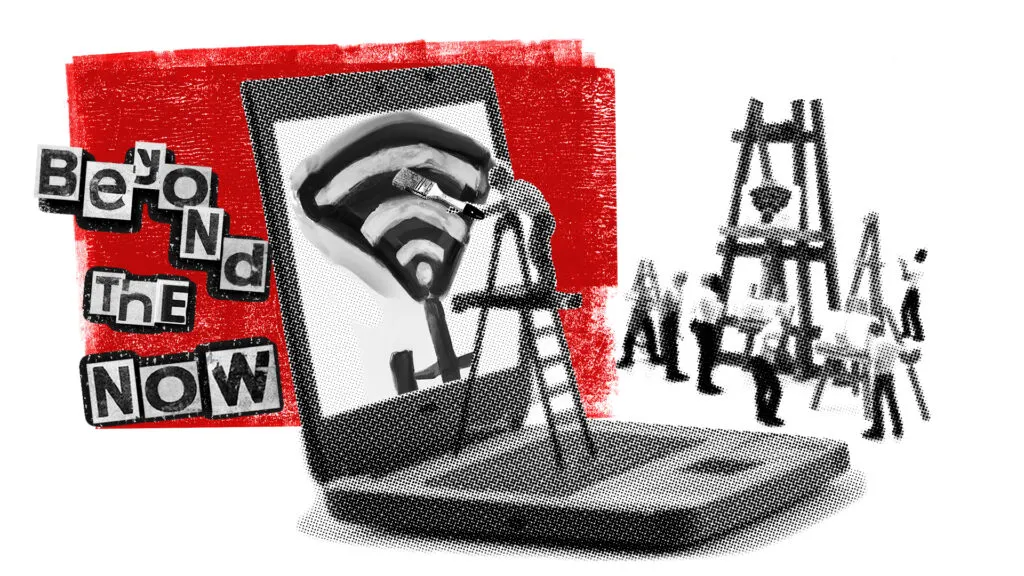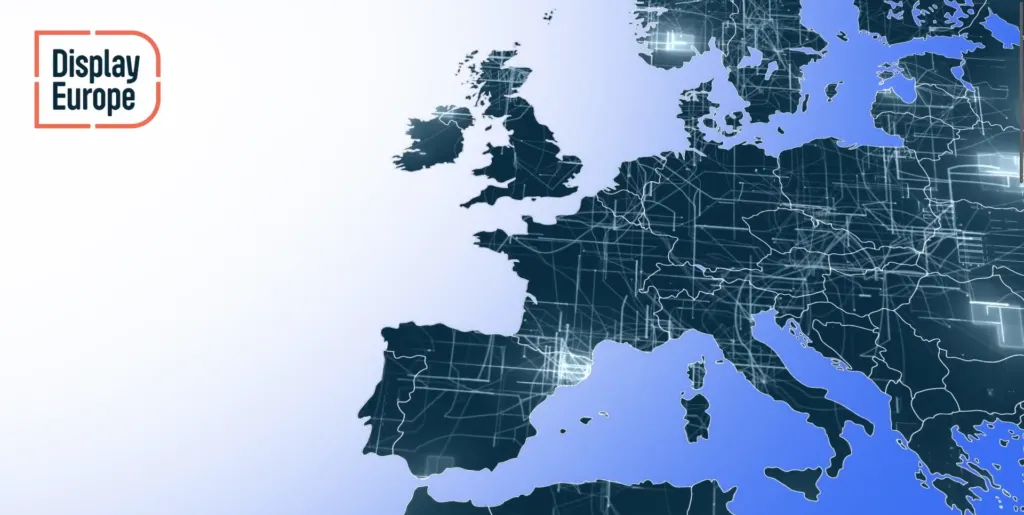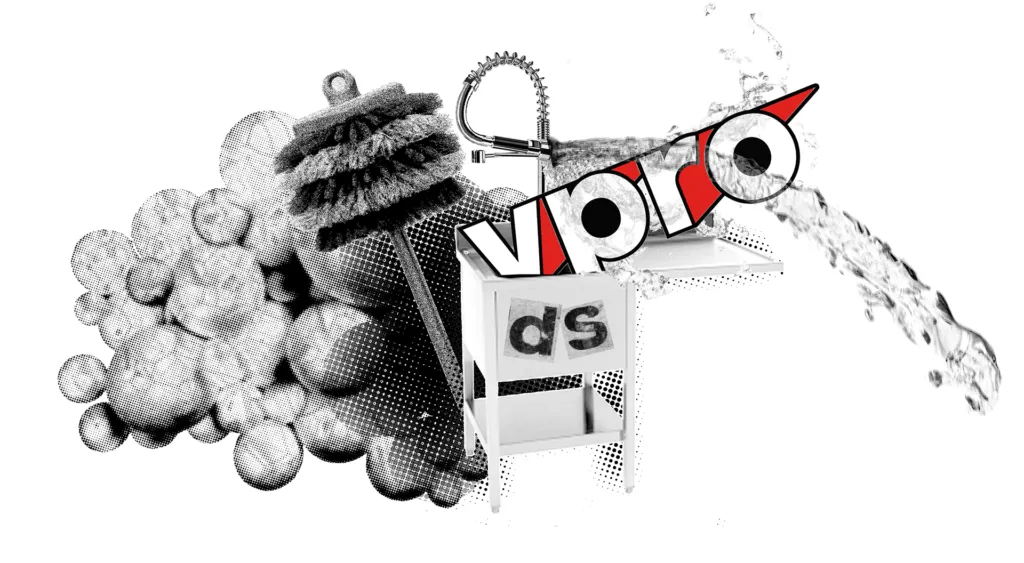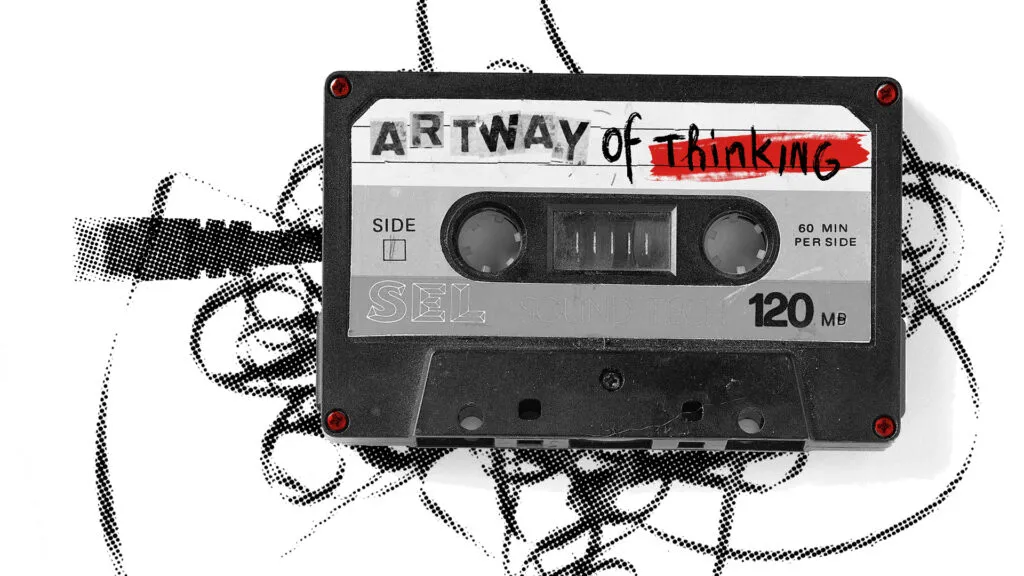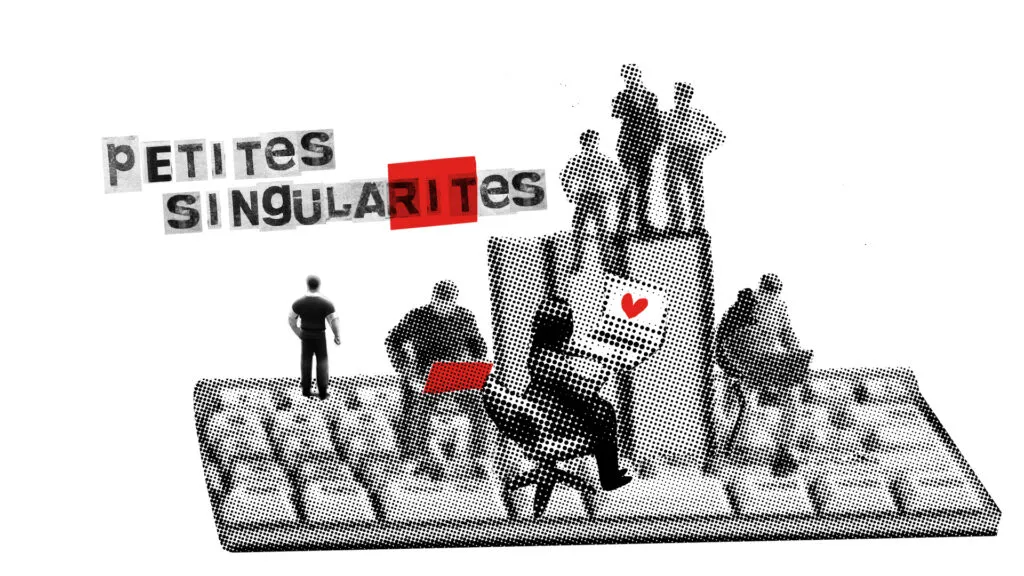In our Librecast project, funded by the European Cultural Foundation, we showcase a series of Pan-European case studies about sovereign media distribution, away from big tech. We highlight these examples and try and learn from them, as we desperately need more sovereignty in our media systems to ensure a well-functioning democratic media landscape. This time we spoke with Áine Obrien, who works with Beyond the Now, a syndicated social practice platform. It aims to establish new learning practices across disciplines and gives journalists, artists & activists the tools to reclaim sovereignty in digital spaces.
Beyond the Now currently consists of seven organizations that represent different societal sectors and perspectives: most notably the arts, education and activism. These organizations and initiatives are Coculture, Counterpoints Arts, MozFest, Plymouth College of Art, The Open University, Ettijahat and Create. They established Beyond the Now during the pandemic as a response to the growing need for digital community, and were seeking a vision that was not merely a response to the “now” of the pandemic, but something more thought-through. Collectively, through written reflections and artwork, they set out to critically examine the use of digital space in their work. Where and what is “social”? What narratives, mechanisms, and tools are employed? How can social justice be realized on the internet? How can communities like Beyond the Now still ensure sovereignity in a space that is often overtaken by the logic of tech giants and commercial incentives?
As co-founder of Counterpoints Arts, Áine has been involved with the launch of Beyond the Now during the COVID-pandemic. The COVID-19 global pandemic has highlighted structural inequality while creating a need for human cooperation and mutual aid.
“Beyond the Now is a collaborative platform, it is a collective of both individuals and organizations. It has provided a space for us to show solidarity throughout the pandemic and to truly honor the idea that together we can achieve more than alone”, Áine explains.
Beyond the Now’s work has much to do with slowing down processes, and opening up spaces for experimentation and rethinking within projects. Beyond the Now experienced that the intersection between art practice and education came naturally with this. As Áine puts it: “I think there is a natural connection between the arts and education sector when you are speaking about socially engaged practices, as this is very much about pedagogy – about learning, about building relationships, about the politics of collaboration if you’d like”.
Digital Platforms as experimental sites for socially engaged art practices
Using the digital realm as a space for bringing people together is at the heart of Beyond the Now’s work. Beyond the Now aims to provide an opportunity for all organizations to pool resources, their networks, different disciplines and skills, and to create partnership projects. It aims to provide a space for collaboration, imagination, and curating with others, where a mix of creative and critical voices from across our communities, medias and the globe sit side-by-side on an open platform. Creating such a digital space cannot be done through the tools provided by Big Tech. Instead, using alternative software tools that center sovereignty, openness and transparency, amongst others, form a better fitting. “We believe the same values that apply during physical gatherings should also apply during online gatherings, wherever possible. Through our collaboration with MozFest, we as Beyond the Now are quite active on digital activism and employ practices such as open source”, Áine points out.
“Online gatherings are necessary since we work remotely with organizations across the globe, but our online practice is more than that” Aime explains. “Digital platforms allow for a continuity beyond a first get-to-know-each-other, for which the non-digital world is often times still preferable. Moreover, opting for digital gatherings also easily provides a space for archive. It can swiftly make work accessible to a much wider audience, so we can share it with the general public. “
Reshaping public storytelling by combining journalistic practice & artistic expression
One of Beyond the Now’s current projects is called ‘Reframing Migrants in the Media’. It directly involves digital activists, bringing them into a conversation with investigative journalists and socially engaged artists of which many have been forcefully displaced. In a nutshell, it focuses on artistic methods as a way to rethink public storytelling in relation to topics of migration and displacement in Europe. “With it, we want to move beyond a simplistic way of storytelling where you are simply humanizing the voice of the migrant. We want to tell stories about the systems, structures and larger architecture behind migration and displacement. Our aim is to learn from the investigative journalist method while allowing this method to learn from the situatedness of socially engaged practice.” Áine elaborates.
After two incubation sessions happening digitally, the third one will take place for the first time physically in Berlin in March 2023. “In Berlin, we will touch upon storytelling, politics of truth, issues around open source and a whole range of other topics. After this, we will define a couple pilot commissions where artists, journalists, educators and digital activists will work together for about 2 months on a resource kit with a methodology that we will showcase in May. We will do this in two ways, both in the digital and the physical realm, where everything shared digitally will be done in an open-source manner” Áine explains. In doing so, Beyond the Now is working with a digital anthropologist, who acts as an advisor. “The digital anthropologist we work with truly offers an interesting perspective and is very informed about alternative open-source software tools” Áine reflects. “As an organization, we have collectively learned about the level of exhaustion digital collaboration can bring. You initially think the digital is going to solve something, while this ends up being much more work as the pressing issue itself remains unresolved. We realized we didn’t want to rush into digital practices for the sake of going digital, so we seek to use digital tools that really enable and enhance the practices we want to showcase rather than the other way around.”
Socially-engaged art has emerged as a critical practice that responds to social inequality and injustice. Rapid changes to the internet and social technologies mean that global, disparate communities are now organizing and collaborating in ways that may not have been possible before, but Beyond the Now also recognizes the potential for exploitation. When opening up new collaborative digital incubator spaces, Beyond the Now is taking special care to not fall into the trap of “digital extractives”, as Aime puts it. This means Beyond the Now carefully examines issues like privacy and personal data. “It is particularly important since our projects involve vulnerable groups.” Áine adds. “We are combining the new possibilities that digital spaces grant us with a critical look at digital ethics, so we can (re)shape the future of community activism.”
Meanwhile, Beyond the Now has held its collaborative incubator in Berlin (see report below), and is now working on a resource kit that they will present in May. You can follow their work and practice here.
Many thanks to Winne van Woerden (Commons Network) for contributing to the project & working with us, as well as our illustrator Julia Veldman C. for creating the header image.
